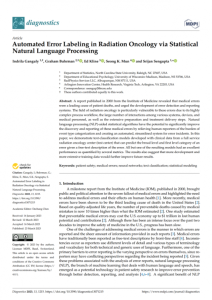According to § 35.2 (Definitions) of the U.S. Nuclear Regulatory Commission (NRC), a medical event means an event that meets the criteria in § 35.3045 (Records and Notifications of a Medical Event). § 35.3045(a) states, in part, a licensee “shall report any event, except for an event that results from patient intervention, in which the administration of byproduct material or radiation from byproduct material results in–
(1) A dose that differs from the prescribed dose or dose that would have resulted from the prescribed dosage by more than 0.05 Sv (5 rem) effective dose equivalent, 0.5 Sv (50 rem) to an organ or tissue, or 0.5 Sv (50 rem) shallow dose equivalent to the skin; and
(i) The total dose delivered differs from the prescribed dose by 20 percent or more.”
In permanent prostate brachytherapy, a medical event can be triggered if the total dose delivered differs from the prescribed dose by 20 percent or more [of the prescribed dose]. This definition has caused considerable concern by clinicians when performing permanent prostate brachytherapy procedures. An article published in Practical Radiation Oncology1 describes the deliberations and recommendations of a working group formed by the American Society for Radiation Oncology (ASTRO). The ASTRO working group was tasked with making recommendations for changing the definition of a medical event as it applies to permanent prostate brachytherapy.
The working group asserts the dose-based approach to defining a medical event under § 35.3045(a)(1)(i) is not acceptable for permanent prostate brachytherapy. Recommendations include drafting of a more appropriate definition for medical event in permanent prostate brachytherapy. In this effort, the working group suggests consideration of a source strength-based definition. The source strength-based approach uses a medical event trigger level of > than 20% of source strength (as intended in the post-implant written directive) that is implanted outside the intended target volume of the plan.2
1,2Naq S, Demanes DF, Hagan M, Rivard MJ, Thomadsen BR, Welsh JS, Williamson JF. Definition of medical event is to be based on the total source strength for evaluation of permanent prostate brachytherapy: A report from the American Society for Radiation Oncology, Prac Radiat Oncol. 2011;4:218-223
Source: http://www.practicalradonc.org






